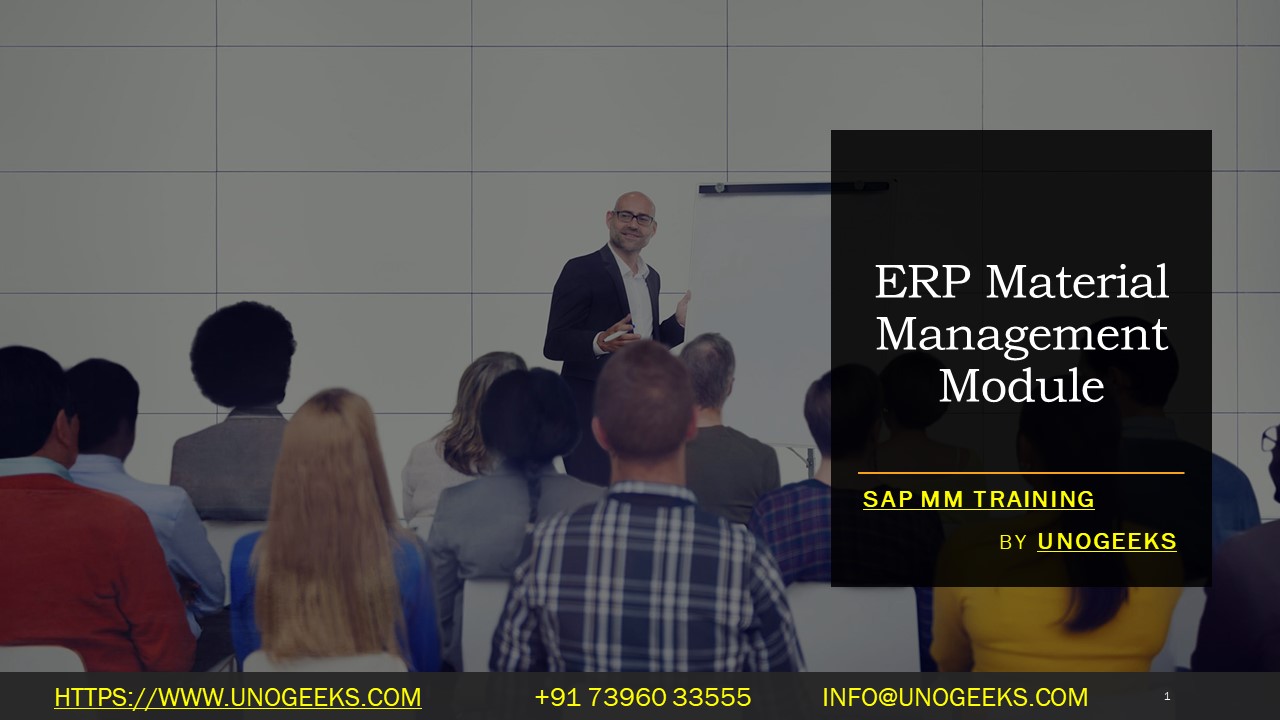ERP Material Management Module
Introduction
In today’s complex, global supply chains, an efficient Material Management module within your Enterprise Resource Planning (ERP) system is non-negotiable. This blog delves into the fundamentals of Material Management modules, their benefits, key features, and best practices for optimal utilization.
What is the Material Management Module?
The Material Management (MM) module is a core component of many ERP systems. It handles the complete lifecycle of materials needed for an organization’s operations, including:
- Procurement: Sourcing, requesting, ordering, and receiving of raw materials, components, or finished goods.
- Inventory Management: Tracking stock levels, warehouse management, optimizing storage, and physical inventory counts.
- Material Valuation: Determining accurate costs of materials, accounting integration, and handling price variations.
- Vendor Management: Managing supplier relationships, contracts, negotiations, and performance evaluation.
Benefits of an ERP Material Management Module
- Optimized Inventory Levels: Reduces stockouts and overstocking, leading to lower holding costs and improved cash flow.
- Streamlined Procurement: Standardized purchasing processes, better price negotiations, and reduced procurement cycle times.
- Enhanced Supply Chain Visibility: Real-time tracking of materials, orders, and supplier performance.
- Cost Control: Accurate material valuation, invoice matching, and prevention of overpayments.
- Data-Driven Decision Making: Powerful reporting and analytics tools for identifying trends, optimizing inventory, and improving supplier selection.
Key Features to Look for in an MM Module
- Purchase Requisitions & Purchase Orders: Flexible creation and management of purchase documents with approvals and workflows.
- Goods Receipt & Invoice Verification: Accurate matching of invoices against purchase orders and received quantities.
- Inventory Valuation Methods: Supports various methods like FIFO, LIFO, average cost, etc.
- Physical Inventory: Tools for cycle counting, stock adjustments, and reconciliation.
- Reporting and Analytics: Dashboards and customizable reports for insights into inventory turnover, supplier performance, and cost analysis.
- Integration with Other Modules: Seamless integration with Finance, Production Planning, Sales & Distribution, and Quality Management.
The Future of Material Management
ERP Material Management modules are continuously evolving:
- Cloud-Based Solutions: Increased adoption of cloud ERP enables flexibility, scalability, and access to the latest features.
- Internet of Things (IoT): IoT sensors and connected devices provide real-time inventory visibility and tracking.
- Artificial Intelligence (AI): AI-driven forecasting, demand planning, and automated reorder points are emerging.
Conclusion:
Unogeeks is the No.1 IT Training Institute for SAP Training. Anyone Disagree? Please drop in a comment
You can check out our other latest blogs on SAP here – SAP MM Blogs
You can check out our Best In Class SAP Details here – SAP MM Training
Follow & Connect with us:
———————————-
For Training inquiries:
Call/Whatsapp: +91 73960 33555
Mail us at: info@unogeeks.com
Our Website ➜ https://unogeeks.com
Follow us:
Instagram: https://www.instagram.com/unogeeks
Facebook: https://www.facebook.com/UnogeeksSoftwareTrainingInstitute
Twitter: https://twitter.com/unogeek
